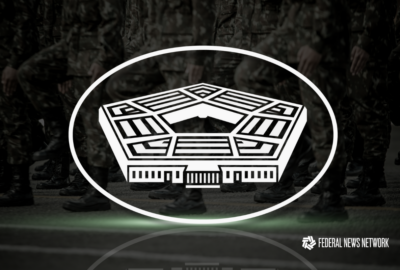CDAO provides AI implementation plan, policy directive to DoD IG
"The directive goes a long way towards helping the DoD understand what the role and responsibility is for the CDAO," said David Edwards.
The chief digital and artificial intelligence office has completed its implementation plan for the AI Adoption Strategy and the DoD’s AI chartering directive, a crucial step for the nascent agency that will help define the agency’s roles and responsibilities in managing the DoD’s data, analytics, and artificial intelligence initiatives.
The agency provided the implementation plan to the Defense Department office of inspector general shortly before the release of the IG report in November that assesses the effectiveness of the CDAO’s development of AI strategy and policy for the DoD.
And the DoD’s AI policy in the form of a chartering directive, was published several days after the release of the IG report, fulfilling the second prong of the DoD IG’s policy-focused recommendations for the CDAO.
“I think having the DoD Office of Inspector General involved really helped them lead towards developing that so they ended up providing that implementation plan to us as part of the formal management comments,” David Edwards, the evaluations intelligence division director at the DoD office of inspector general, told Federal News Network.
“And the directive or charter goes a long way towards helping the department understand what the role and responsibility is for the chief digital and artificial intelligence office. That was a big milestone that just happened here a few weeks ago with the publishing of that directive. That was another thing that we found that we were able to, as the office of inspector general, help the department move forward and accelerate their timelines to get that across the finish line.”
While the implementation plan and the directive has been completed, the chartering directive’s implementation instruction is still in its draft form. Both the chartering directive and the implementing instruction will be foundational policy tools that clearly define CDAO’s the CDAO’s mission, functions, relationships, and authorities regarding the DoD’s adoption and integration of data, analytics, and AI capabilities.
The CDAO doesn’t control the process — the Washington Headquarters Services, a DoD agency responsible for administrative oversight, is currently reviewing the instruction. The review can take weeks or even months to complete.
“They’re moving that through the process. We continue to pulse CDAO to get updates as recently as just this week with how things are going. It is expected shortly, but we don’t have a time frame on that. But once they conclude that, we’ll go ahead and close the last recommendation,” said Edwards.
The chartering directive is about two years late — Deputy Defense Secretary Kathleen Hicks directed the CDAO and the office of the director of administration and management to develop the DoD’s AI policy back in 2022. The delay of both the implementation plan and policy directive caused confusion about the Chief Digital and Artificial Intelligence Office’s roles and responsibilities for DOD data, analytics and AI and between the CDAO and the DOD chief information office.
CDAO and DoD CIO officials told the IG office they “disagree on what encompasses ‘digital infrastructure’ due to their organizations’ understanding of the term “infrastructure,” particularly as it pertains to information technology and cloud-based systems that include AI.”
“A CDAO official stated that this disagreement led to the CDAO and the DoD CIO both being concerned that some of the CDAO and the DoD CIO responsibilities may overlap,” the IG report states.
Since the IG office began its analysis in January, the CDAO and DoD CIO have begun working together to address these issues — the two offices are developing a new AI accounting database, which will track AI spending across the department and help make informed decisions on future AI investments. The database will help address concerns the two offices have had about any potential budgetary overlap.
“That’s something that we can we’ll continue to follow up with them on not it was not a core recommendation for this report, but it is something that we may recommend or refer over to our audits division that are more primarily focused on some of the monetary and budgeting issues as a potential project for them,” said Edwards.
While this IG report’s focus is primarily on governance and policy, the office plans to shift its focus to the acquisition and development of AI products and services in the future. As for 2025, Edwards said his office will work on a number of AI-related initiatives, including project Maven and Replicator.
Copyright © 2024 Federal News Network. All rights reserved. This website is not intended for users located within the European Economic Area.






